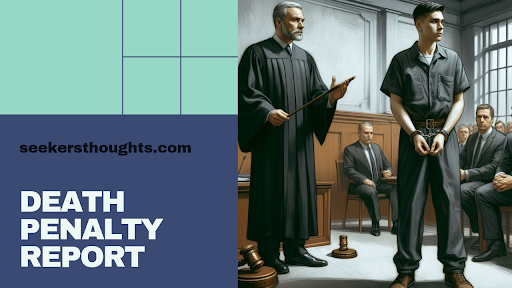India has responded ambiguously to the death penalty. While lawmakers increased its scope, this resulted in legal limitations and legal disputes that prevented its enforcement.
Though trial courts imposed the highest total number of death penalties since 2000 and death row populations reached their peak ever, the issue lies within how judges assess aggravating and mitigating circumstances.
The number of death penalty cases
According to a newly released report by Project 39A at National Law University of Delhi, appellate courts confirmed only one death sentence during 2023 while most prisoners had their sentences commuted or overturned, as revealed in its annual death penalty report. Authors highlighted how death penalty negatively impacted economically vulnerable individuals disproportionately while advocating for alternatives that ensure public safety without irreparable harms associated with executions.
Although trial courts increased death penalties last year, high courts saw a notable drop. This may be because trial courts continue to disobey Supreme Court guidelines regarding doling out death penalties - leading to many deaths row prisoners being wrongly accused or convicted of crimes they never committed or had any connection with.
High courts upheld 36 prisoners' appeals against their convictions in appeals brought before high courts; two cases involving five prisoners were sent back due to significant lapses in cross-examination of forensic evidence. This comes at a time when the Supreme Court is deliberating on a proposed bill called Bharatiya Nyaya Sanhita Bill that will replace existing Indian Penal Code; its provisions increase from twelve to 18 crimes punishable by death while codifying mercy petition procedures and restricting life imprisonment as possible upon sentence commutations.
The number of death sentences
Project 39A of National Law University Delhi published this month revealed that trial court deaths sentences fell by 52% since 2000; while High Courts (HCs) only confirmed one of 120 death sentence convictions that their hearing panels heard, which is an impressive statistic.
The High Courts (HCs) sent five prisoners back to trial courts, acquitted 36 and commuted the death sentences of three others; two prisoners were freed after providing proof they were minors at the time of offense; however, due to too few cases being adjudicated annually due to ineffective HCs in dealing with death penalty cases brought forward from trial courts, death row populations continue to increase each year.
Although the Supreme Court has held that capital punishment can only be administered when judges consider both crime-related aggravating and mitigating factors about an accused, as well as creating a constitutional bench to identify potential gaps in sentencing framework, due to slow disposal rates by high courts and trial courts this trend must be reversed immediately.
The number of death row prisoners
Project 39A, a criminal justice programme affiliated with National Law University Delhi, released a report showing that India?s death penalty system is inefficient due to various "systemic impediments", including overstretched police forces and ineffective prosecution; lack of legal aid as well as poor prison facilities which prevent prisoners from meeting with their legal teams and tracking case status updates;
The Supreme Court recently issued decisions in four death penalty appeals and two criminal appeals that saw death sentences commuted for three prisoners; it also released two prisoners after discovering they had committed offenses as minors at the time of their offenses.
Report findings highlighted a substantial proportion of prisoners across the nation as belonging to economically vulnerable classes and religious minorities or scheduled castes, not having completed secondary education and experiencing mental health problems. Prisoners sentenced to death are denied access to rehabilitation activities while also not allowed treatment for their illness and denied family visits, along with receiving inadequate medical care during incarceration - leading many of them to die while waiting for court hearings to hear their case.
The number of convictions
As time has gone on, death penalty trials have seen their conviction rate decline dramatically in courts. This can be attributed to changing perceptions among members of the public as well as greater awareness of judicial misconduct; additionally, due to newer and more sophisticated forensic technologies making it more challenging for courts to determine guilt or innocence.
Despite these difficulties, India's legal system continues to apply death penalties. In 2023 alone, high courts heard 68 cases involving prisoners facing the death penalty; three cases were confirmed, 48 saw their sentences commuted to life imprisonment, and six saw all charges dropped altogether. At the same time, five prisoners on death row were cleared off charges by the Supreme Court who commuted their sentences accordingly.
The report highlights that the Supreme Court has become increasingly discontent with how it has administered death sentences and is encouraging the government to adopt alternative forms of punishment, in line with international legal developments that reflect an increasing trend away from capital punishment. Countries which continue to use capital punishment must strive towards finding alternatives which respect human dignity while upholding principles of fairness and justice - something best accomplished through collaboration among government agencies, civil society organizations and legal experts.












No comments:
Post a Comment